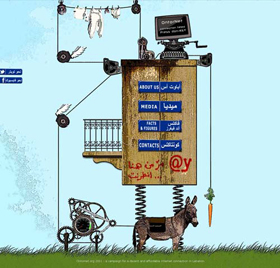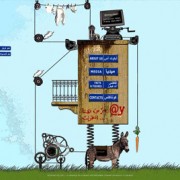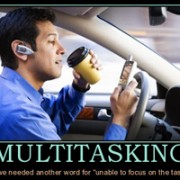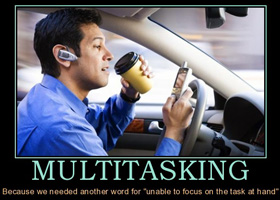#Ontornet – A Lebanese Campaign for Faster Internet
 As of late, a couple organizations campaigning for faster internet in Lebanon have been birthed. One of them, Ontornet (a play on the Arabic ‘Ontor’, colloquial Lebanese Arabic for “wait for the net”), has already started to gather quite the buzz locally and internationally.
As of late, a couple organizations campaigning for faster internet in Lebanon have been birthed. One of them, Ontornet (a play on the Arabic ‘Ontor’, colloquial Lebanese Arabic for “wait for the net”), has already started to gather quite the buzz locally and internationally.
Lebanon has one of the slowest internet connections in the world. To add insult to injury, said slowest internet in the world is also probably one of the costliest in the world. So, people are fed up, and are demanding access to better, faster and cheaper internet. According to their own words, they are:
“Random Lebanese Internet users infected with Internet service deception, both on the private and corporate level. Random Lebanese Internet users unhappy with their country missing out on enormous opportunities for economical (sic) improvement as well as vital foreign investments due to outdated Internet technology. Random Lebanese Internet users not proud of breaking yet another official world record as the country with the slowest Internet connection.”
Most people in Lebanon believe that the internet is so hampered here due to political conflicts and financial interests in the region. The government has made no secret of its messy relationship with the two mobile phone providers in Lebanon. In addition to that, the Lebanese have not stood up and vocalized their concerns, and their needs. Ontornet is that voice of the people, aiming to raise awareness about the internet situation in the country.
Not to focus on the personal aspects of annoying and slow internet connection, anyone working in the country knows just how bad the internet here is, and how that in turn translates to frustrating and longer working hours. At the end of those working hours, one still has not finished his or her task list. Looking at the bigger picture though, faster and more efficient internet could only be a positive thing for businesses, the country and the economy.
What are your views and thoughts about the internet in Lebanon and the region? How does it affect you work?



 It’s a good day for us in
It’s a good day for us in 
 A molecular biologist compares a person driving and texting to a person in the office who is simultaneously checking emails, writing up a document, and surfing the web. He claims they are essentially doing the exact same thing. He also claims that the brain is not made to multi task, and it just doesn’t exist, as much as it is highly praised when someone claims they actually can multi task. He gives another example: You may have noticed that when you are working on something, and have music in the background, you finish work and realize the CD is finished but you can’t recall any of the songs you heard.
A molecular biologist compares a person driving and texting to a person in the office who is simultaneously checking emails, writing up a document, and surfing the web. He claims they are essentially doing the exact same thing. He also claims that the brain is not made to multi task, and it just doesn’t exist, as much as it is highly praised when someone claims they actually can multi task. He gives another example: You may have noticed that when you are working on something, and have music in the background, you finish work and realize the CD is finished but you can’t recall any of the songs you heard.